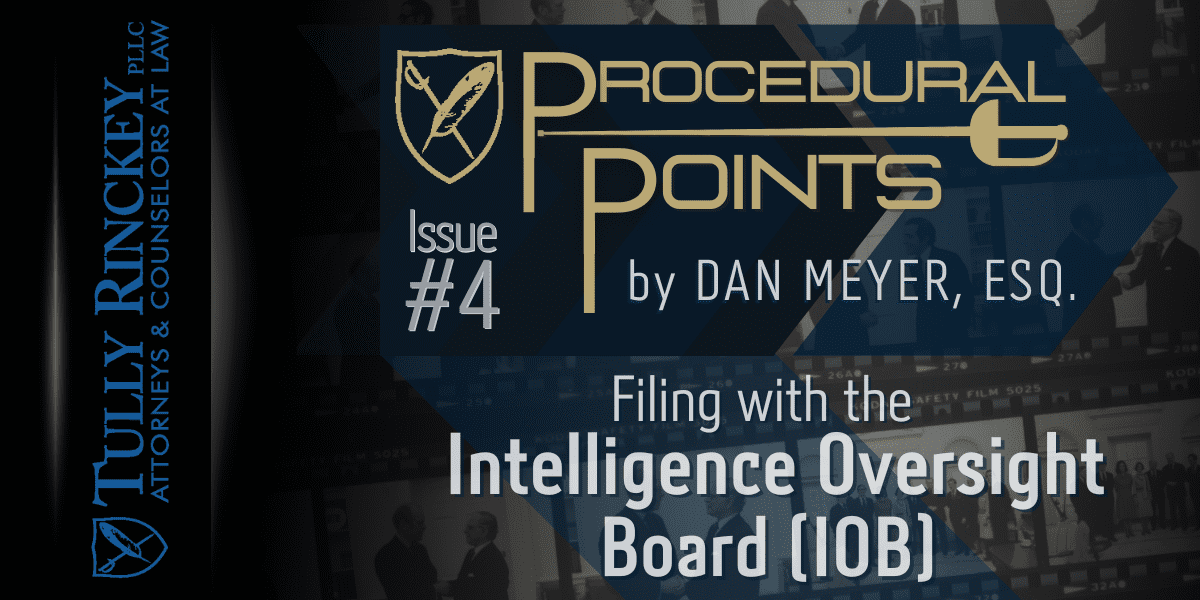Summertime is peppered with family vacations, federal holidays, block parties, and fun in the sun. But, it’s not just tomatoes and the beach that are in season. Studies suggest that illegal and illicit activity spikes in the summertime. Public drunkenness, DWIs, racking up a mobile sports betting debt, marijuana use, financial instability, alcohol abuse, illegal activity—all could jeopardize your security clearance, whatever the season. And now that assessment is ongoing, security clearance holders must be even more vigilant about self-reporting.
At the core of the security clearance adjudicative process is the “whole-person concept.” In assessing your eligibility, one snapshot in time is not enough. Any reliable and available information available—old or new, good or bad—is taken into consideration.
One mistake this summer may not be enough to blow your security clearance on its own. But, in some cases, the failure to self-report an incident may be even more damaging than the original incident itself.
Continuous Evaluation and the Need to Self-Report
Self-reporting is crucial for those who wish to maintain their security clearance. It used to be that security clearance holders were monitored with periodic investigations. Now, ongoing screening is the DoD norm. Continuous Evaluation (CE) or Continuous Vetting (CV) tracks data from a number of sources, including databases (credit, foreign travel, criminal activity, etc.) and other public records.
With Continuous Vetting in place, more cases of potential alcohol abuse and criminal conduct are being flagged. Certain triggers alert the Defense Counterintelligence and Security Agency (DCSA): an agency under the DoD charged with personnel security). If assessment finds the alert merits further investigation, the adjudication process comes into play. The goal, the DCSA states, is to “mitigate personnel vetting situations before they become larger problems, either by working with the cleared individual to mitigate potential issues, or in some cases suspending or revoking clearances.”
So now, rather than being the primary means by which relevant agencies become aware of a potential cause for concern, self-reporting takes on a different importance: demonstrating the regard with which you hold your privileged position of trust as well as your integrity as a whole.
To put it simply: self-reporting can tip the scales in your favor when trying to prove that you can be trusted with your security clearance. Not self-reporting can tip them in the other direction.
Ready to book your consultation? Click below to pay our consultation fee and book your meeting with an attorney today!
Mitigating Factors in Security Clearance Adjudication
Self-reporting doesn’t just demonstrate your integrity. It allows you to get ahead of the narrative and preemptively provide mitigation. Mitigation refers to any larger context, information, or remedial efforts (past, present, or planned) that demonstrate you are 1. aware of the problem, and 2. have taken or are taking steps to address the problem.
In short, adjudicators considering mitigating factors ask: Did you have control over the situation? In either case, did you act responsibly given the circumstances?
Per policy guidelines on reporting detailed in Security Executive Agent Directive-3 (SEAD-3), a number of events or circumstances should trigger a self-report. Some of these only apply to Secret or Top Secret personnel. The following apply to all security clearance holders.
Let’s take a brief look at some of the most common incidents that might be a red flag for DCSA, as well as some of the mitigating factors weighed during adjudication.
Finances
Money makes the world go round—and it is one of the more common reasons given for illegally sharing classified information. So, it should be no surprise that finances remains the top reason security clearance holders are flagged for further investigation.
Mitigating Factors:
- Are you seeking financial counseling and putting a plan in place to resolve your debt?
- Were you victim to predatory lending?
- Was your identity stolen?
- Are you receiving treatment for gambling addiction?
- Did you self-report your financial hardship/irregularity?
Drug Use: Marijuana with a Security Clearance
Weed may be legal in your state. In the eyes of the federal government, however, marijuana is a Schedule 1 substance. If you use marijuana after obtaining your security clearance, things get far trickier than if you’d stopped beforehand.
Mitigating Factors:
- Have you proactively and voluntarily sought counseling and/or rehabilitation for your drug use?
- How many times/for how long/in what quantity did you use this drug?
- Did you self-report your drug use?
Criminal Conduct and Other Red Flags
Buying or setting off illegal fireworks, public drunkenness at the company park picnic, driving home from a birthday party while intoxicated, jumping the turnstile on the subway after you’ve realized you lost your wallet at the block party, getting in a brawl at the neighborhood barbeque—none of these paints the best character portrait. But for a security clearance holder, any one of these incidents could put your career at risk.
In the case of past behavior, you may be able to appeal to a number of mitigating circumstances: your young age, a demonstrated lack of pattern of bad behavior, a long period with zero similar behavior, and past remedial action with proven results. But that’s not an option for anybody holding a security clearance at the time of the incident.
Mitigating Factors
- What was the larger context of the incident? If a fight, was it self-defense?
- Were you aware you were consuming alcohol and how it might impact you given the temperature, time of day, the concentration of the drink in question?
- Is this the first time such an incident occurred?
- Did you self-report the incident?
You can contact us 24 hours a day, 7 days a week via phone at 8885294543, by e-mail at info@tullylegal.com or by clicking the button below:
Conclusion
You may have noticed the common denominator among all these mitigating factors: self-reporting demonstrates not only that you are aware of what you did and why it is a problem, but that you have the integrity to own up to your mistakes before they can own you. Depending on the particular case and incident in question, you may not be able to keep your security clearance. But failing to self-report will never help you in the adjudication process. Self-reporting can only help your case.
Your position as a security-clearance holder is a privilege, not a right: one you hold 24 hours a day, seven days a week—including vacation, federal holidays, or any period of hardship.
You can ask your security office or FSO for more guidance on your self-reporting obligations and other eligibility concerns.
If your job requires a security clearance, revocation of your clearance could have a devastating impact on your career. There is an appeals process in place, and you are permitted an attorney. It is highly advised to seek legal counsel before attempting a rebuttal of your SOR on your own, or risking automatic revocation due to missed deadlines or other filing errors.
Tully Rinckey attorneys understand that issues involving security clearances can be challenging, and they will handle your matter with the attention and tact it deserves. If you have additional questions, our team of dedicated security clearance attorneys is available to assist you today. Please call 8885294543, or schedule a consultation online.
Dan Meyer, Esq. is a Partner at Tully Rinckey PLLC’s Washington, D.C. office and has dedicated more than 25 years of service to the field of Federal Employment and National Security law as both a practicing attorney and federal investigator and senior executive. He is a lead in advocating for service members, Federal civilian employees, and contractors as they fight to retain their credentialing, suitability and security clearances.







